The way people eat has changed significantly over the past few decades amid rising awareness about the impact of commercial farming on our health, our lifestyles, and our environment. In recent years, there’s been a noticeable shift toward more animal-free, plant-based food options, and rising interest in transparency over food sources, especially in the Western world.
The “clean” meat industry has certainly been having a moment, with players such as Impossible Foods, Beyond Meat, and Israeli startups like Redefine Meat, Future Meat, and Aleph Farms, all having a stake in the future of plant-based and cultivated meat.
Could the dairy industry be the next frontier? Israeli food tech startup Remilk, a developer of animal-free dairy products through microbial fermentation, certainly thinks so.
Nearly 30 years after the famous “Got Milk?” campaign, dairy-free “milk” is extremely popular. The dairy alternatives market is projected to grow from $21.4 billion in 2020 to $36.7 billion by 2025, according to a global forecast report by Markets and Markets. The market is segmented by source type including soy, rice, coconut, almond, oats, and others, with the soy segment proving the most popular, especially for milk.
But Remilk hopes to be the first company the roll out real dairy products such as milk, cheese, and yogurt, without needing a single cow. The startup was set up in 2019 and produces lab-made, dairy-like food without the use of animals, using a unique, patented process to replicate the properties of the dairy proteins.
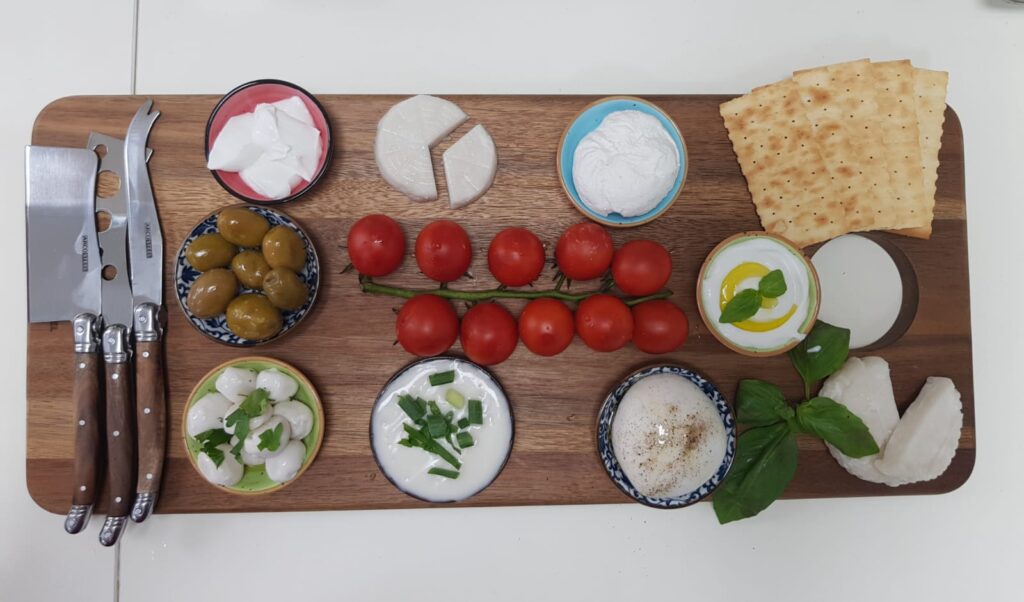
“Remilk was founded with the mission to stop using animals to produce our food because, as dairy lovers, we realize that giving up on milk is not an option,” Aviv Wolff, CEO of Remilk, tells NoCamels. “ But today’s milk comes with an unreasonable price tag. The dairy industry is destructive to our planet, our health, and our animals, and is simply not sustainable anymore.”
The environmental toll is undeniable. Dairy cows contribute significantly toward climate change through greenhouse gases. According to Helen Harwatt, a food and climate policy fellow at Harvard, “dairy is the second-highest emitting livestock product, accounting for 4 percent of all global emissions.” (Beef is number 1). In addition, dairy farming requires exorbitant amounts of water and grazing land, while also producing copious amounts of waste.
Remilk says its offerings are notably more sustainable and eco-friendly than traditional dairy production systems, requiring just one percent of the land, four percent of the feedstock, and 10 percent of the water to produce than comparable dairy products.
And the startup has attracted significant interest and financial backing from major players in the food industry. In December, Remilk raised $11.3 million in a funding round led by fresh.fund, an Israeli VC firm focused on early-stage startups, and included backers such as Israeli venture firm OurCrowd, ProVeg International, a food awareness NGO, as well as food manufacturers Hochland, a German dairy company, Tnuva, one of Israel’s largest milk and fairy companies (acquired Chinese conglomerate Bright Foods) and Tempo, a large Israeli beverage company.
Animal-free milk and dairy
Remilk says it makes proteins that are identical to dairy proteins through microbial fermentation, and developing a unique approach to lab-based dairy manufacturing that doesn’t compromise on taste, functionality, and nutritional value.
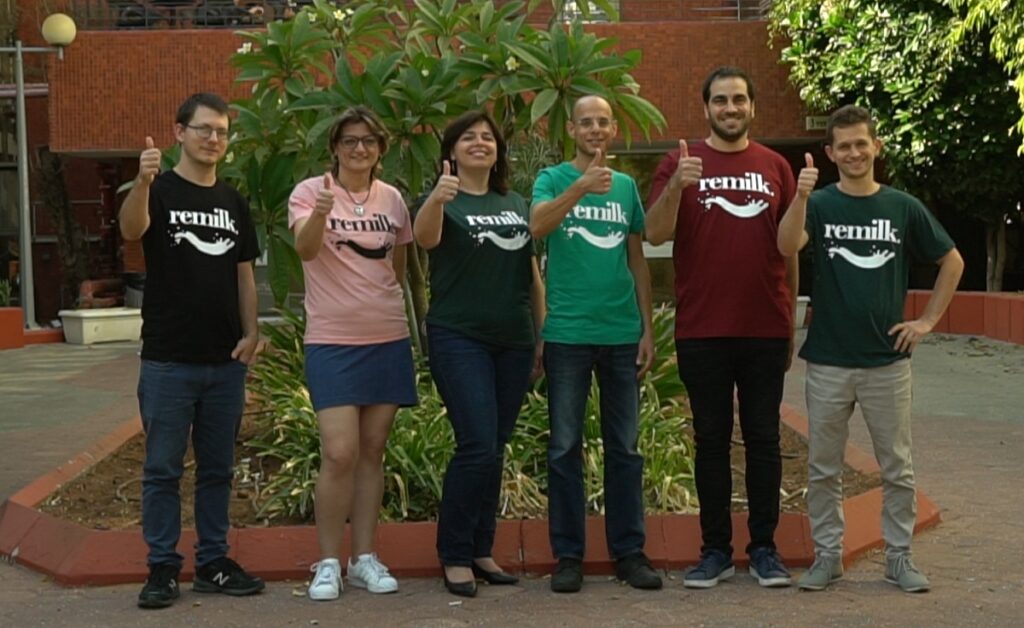
“In a very simple way, we take the gene that encodes for the milk protein,” Wolff explains. “The gene functions as an instruction book for the production of the protein it encodes. And so, we insert the gene into a microbe that we’ve developed and it instructs our microbe to produce the specific protein in a very efficient and scalable way.”
Microbial fermentation is not a new concept, but it is revolutionary in dairy production. Wolff tells NoCamels that microbial fermentation “has been used commercially since the 1980s to produce human insulin, growth hormone, enzymes, and various other proteins.”
Sign up for our free weekly newsletter
Subscribe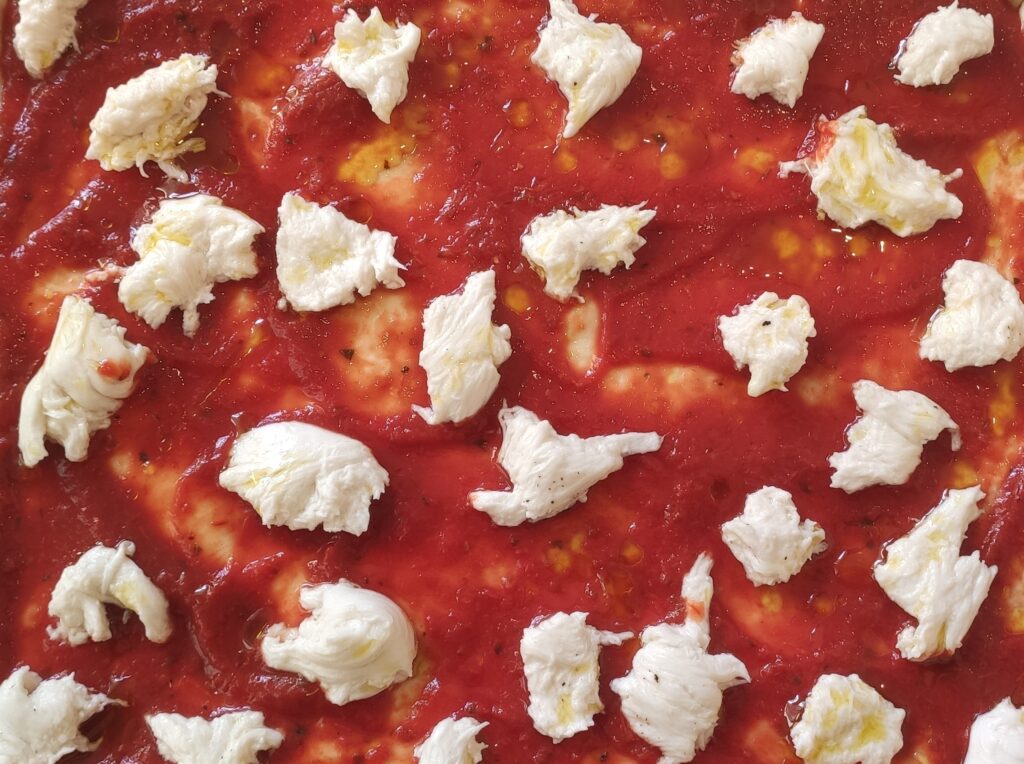
Remilk utilizes this scientific process to “take the fermented proteins and formulate them into all kinds of dairy products that are identical to regular dairy products, with the same taste, texture, stretchiness, and meltiness.”
The results are products – milk, yogurt, cream and cheese – that are cholesterol-free and contain no lactose, antibiotics, or growth hormones.
And Remilk says they taste identical to real dairy. Remilk products are not yet commercially available, but eventually they aim to “replace cows as a whole by creating every dairy product out there,” Wolff says.
Lab-cultured milk
While Remilk has generated headlines recently, it is one of a few dairy-free dairy ventures out there.
BioMilk, an Israeli startup based in Ramat Gan, is one of these outfits. Founded in 2018, BioMilk is focused on three main development tracks: cultured milk from animals, cultured human breast milk, and high-grade human milk oligosaccharides (HMOs).
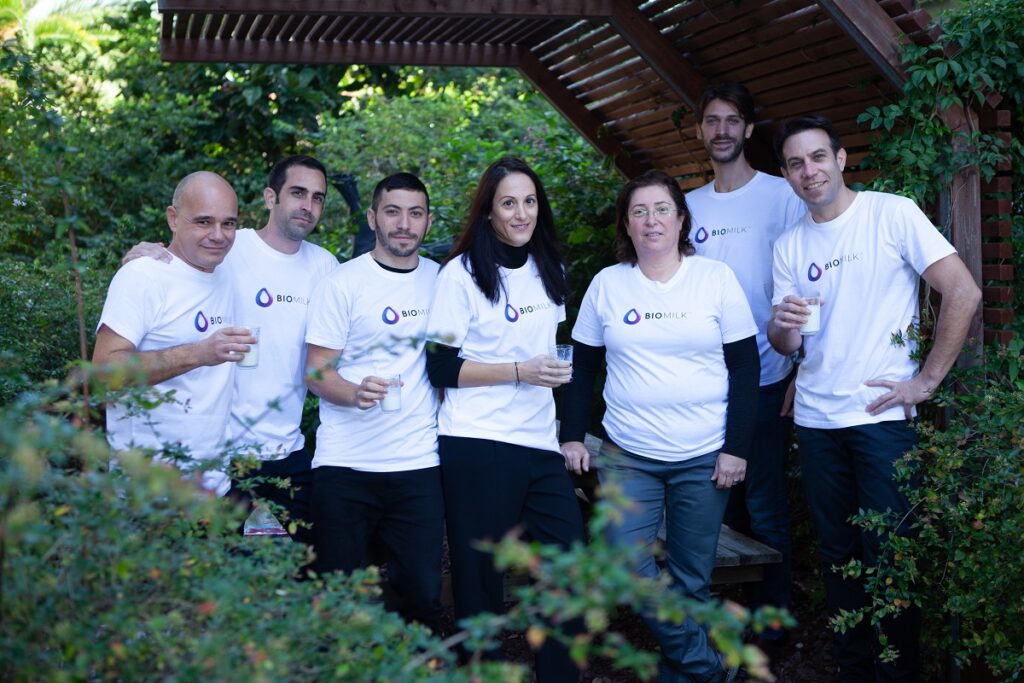
SEE ALSO: Lab-Cultured Breast Milk: Israeli Startup Races To Do It First
BioMilk currently holds patents for the production of cultured milk from animals within laboratory conditions and has a three-step process: first, they isolate the mammary cells, the ones whose job is originally to produce milk in their natural setting, inside of the mammal; second, they culture those cells in bioreactors and help them grow, enabling them to continue performing their original mission; three, the cells then secrete milk, which can be used for making everyday dairy products.
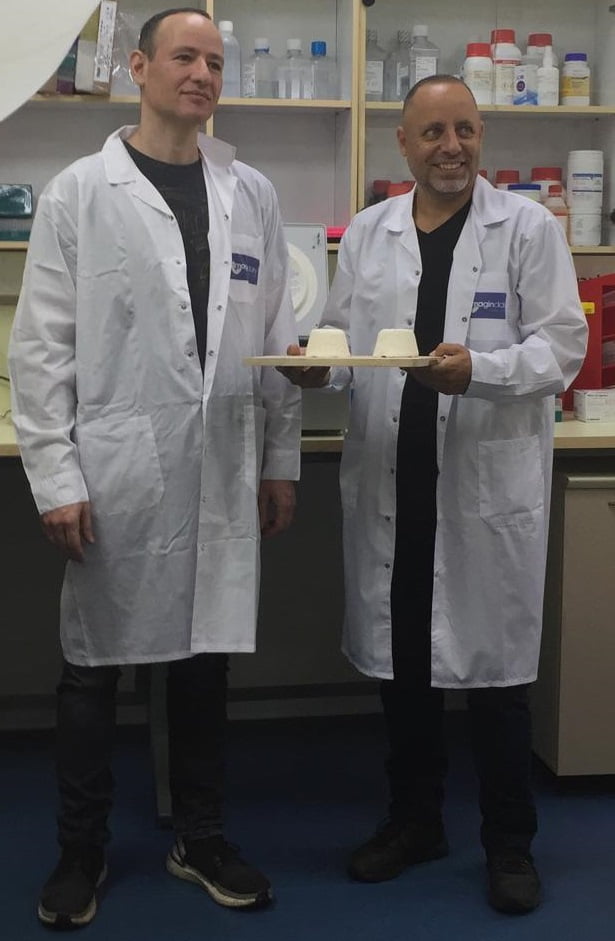
Meanwhile, Israeli researchers at Tel Aviv University are working to produce a product that looks and tastes like milk, but is made using yeast.
Professor Tamir Tuller from the Biomedical Engineering Department of the Iby and Aladar Fleischman Faculty of Engineering at Tel Aviv University together with foodtech entrepreneur Dr. Eyal Iffergan, established the startup Imagindairy for this feat.
Imagindairy’s plan is not to produce a milk substitute like almond or soy milk, but a product “that will be identical to products that come from animals by introducing the yeast genome to genes that code for milk development in cows,” Prof. Tuller said in a university statement last month.
Gene expression is the process of turning information stored in “inanimate” DNA into proteins that are the ‘essence of life’ and are a major ingredient in every living thing that we know, from human beings to the coronavirus to cow’s milk,” he explained. Biotech companies have been harnessing the gene expression process to produce desirable proteins affordably. “This technology has been used for many years to produce medications, vaccines, and energy, and it is also used in the food industry,” he went on.
Imaginedairy is working with Tel Aviv University via Ramot, the institution’s technology transfer company.
Related posts

Editors’ & Readers’ Choice: 10 Favorite NoCamels Articles

Forward Facing: What Does The Future Hold For Israeli High-Tech?

Impact Innovation: Israeli Startups That Could Shape Our Future


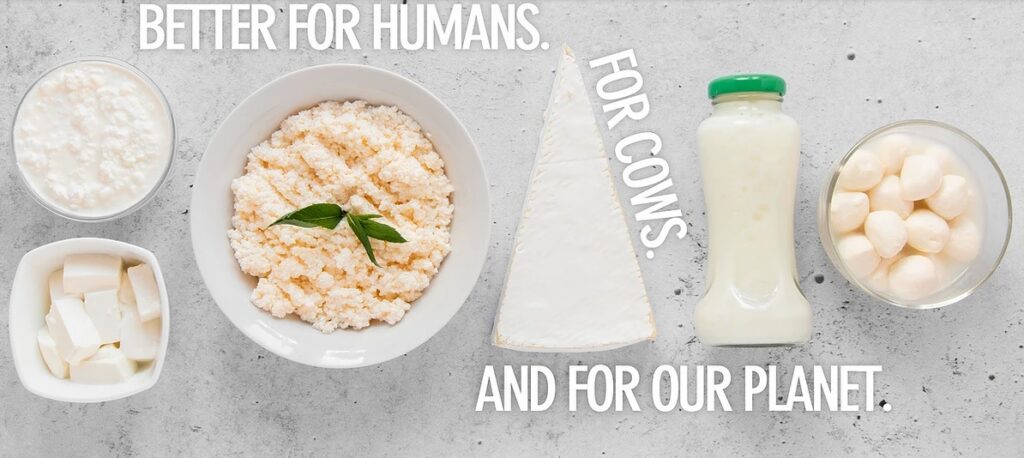

Facebook comments